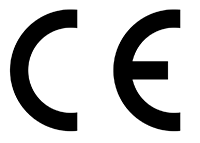
Brexit: Effect on Rewards Based Crowdfunding
There’s no doubt that the UK decision to leave the EU will have far-reaching consequences but is the Brexit likely to affect crowdfunding in any way at all? In short, yes, and for three main reasons.
Currency Fluctuations Caused By Brexit
The recent dramatic fluctuations in currency will have an immediate impact on the value of any cross-currency backing. This will be particularly noticeable for pledges that have already been made but where funds have not yet been collected. The overall effect will be that things will become more expensive for anyone in the UK backing a non-GBP project and conversely will reduce the cost of any pledge to a Stirling-based campaign from other countries.
Projects raising funds in Stirling will also find that any components they had budgeted for from overseas suppliers are likely to be more expensive as a result of the turmoil. It’s impossible to gauge the affect that Brexit will have in this respect but it could require some tightening of purse strings for UK creators.
If I had any advice to offer for people about to launch a UK campaign, I would suggest that if you are planning to get components from outside of the UK, then you might want to look at whether listing your project in USD might be a better option until the financial markets have settled down. This won’t be the right fit for everyone but it’s definitely an avenue worth exploring.
 Regulatory Standards
Regulatory Standards
This is a much bigger problem than many people care to imagine and it will almost certainly be a long-term issue. One of the things that has prompted the UK electorate to vote out of the EU is to escape from the myriad of regulation put in place by the EU. However, it is the comprehensive regulations covering everything from the acceptable state of groceries to the size of coffins that is at the very heart of what the EU actually is. If you build a widget and it is CE compliant, then you can sell it in 28 member states without any further testing or modification. Build it in Portugal, sell it in Poland, no need for any further certification. Ironically, once the UK has left the EU (and it hasn’t quite left yet) this will no longer be the case and anyone wanting to sell into both the UK and EU markets will need to meet two sets of regulatory standards even though they may be identical.
If you want to sell something in the UK after Brexit is complete then you will need to comply with whatever British standards are in place.
In practice the likelihood is that if something is CE compliant then it will meet British standards. However, CE compliance will not imply or provide automatic acceptance of your product within the UK. This is important for crowdfunding campaign owners across the world who want to be able to sell to the UK market. As an example, my all-time favourite campaign “PancakeBot” saw the U.S. creator face some design issues to achieve CE compliance for the griddle pan. However, once that was overcome and the product was CE marked, it could be distributed to any of the 28 member states, including the UK, without any further compliance certification. A year or two from now, once the UK is no longer part of the EU, the same griddle may well meet both UK and EU standards but it will need to be certified separately.
This obviously impacts the attractiveness of the UK as a market. If you are selling 100 units in the EU then it’s probably worth getting your product CE certified. If you’re only selling two units into the UK, you might not think it worth the extra cost for the additional certification. One potential impact on Crowdfunding in this respect is UK backers being locked-out of supporting some rewards-based campaigns simply because it isn’t economical for the project owner to achieve regulatory compliance.
 Import Duty and Value Added Tax
Import Duty and Value Added Tax
This is not as big of a deal as you might think but it is still a concern. At the moment the free movement of goods means that if you are within the EU and you back a campaign that is also within the EU then there’s no further taxes to pay when you get your reward. In contrast, if you are in the EU and you get something from the USA, you will get slapped with an import duty charge, a value added tax bill and a handling charge from the shipping company for all the hassle of customs.
Charges may or may not be imposed as time goes on (including how VAT is dealt with) for trade between the UK and the EU. However, it is something worth bearing in mind if you are involved in crowdfunding and especially if you are in the UK
But Will It Be Bad For Crowdfunding?
In reality it will change very little for the community at large but will definitely have a negative effect for UK-based backers. In contrast, project owners may well see an upturn in business if Stirling remains devalued and the UK becomes a cheap place for foreign backers to invest in rewards based campaigns.
As an avid supporter of crowdfunding campaigns, I always try to back EU based campaigns purely because it’s never nice to get a card through the door demanding £17.85 in import duty and handling charges for a PCB the size of a credit card. Only time will tell what the extent of the impact will be, though I don’t expect it to be too hideous.
My Own (Completely Subjective) View on Brexit
Crowdfunding is about a community working together and for me, flawed as it is, the EU is the embodiment of that philosophy. The world will no-doubt sort itself out but I am saddened that I will no longer be able to call myself an EU citizen as I have, after all, been one for as long as I can remember.